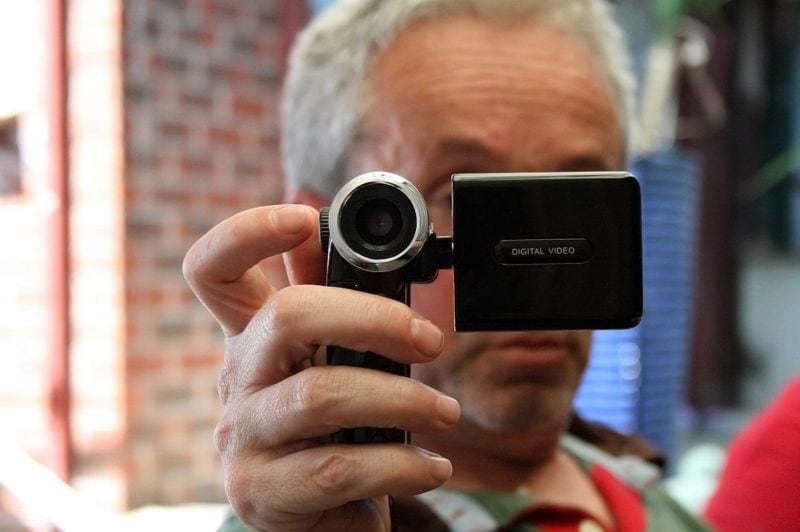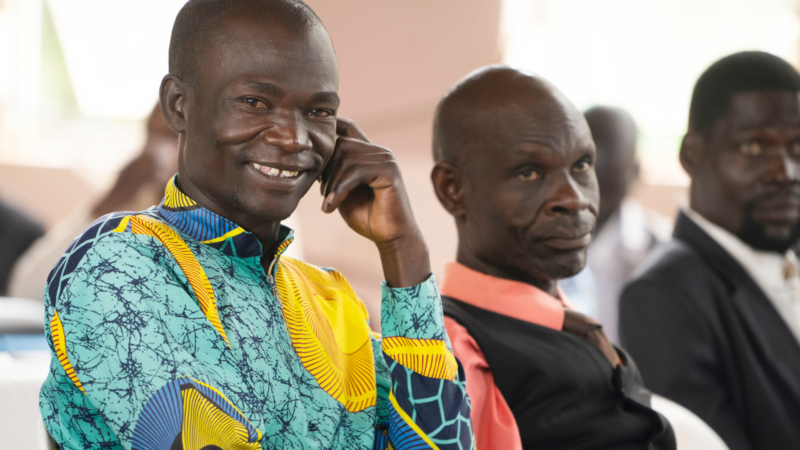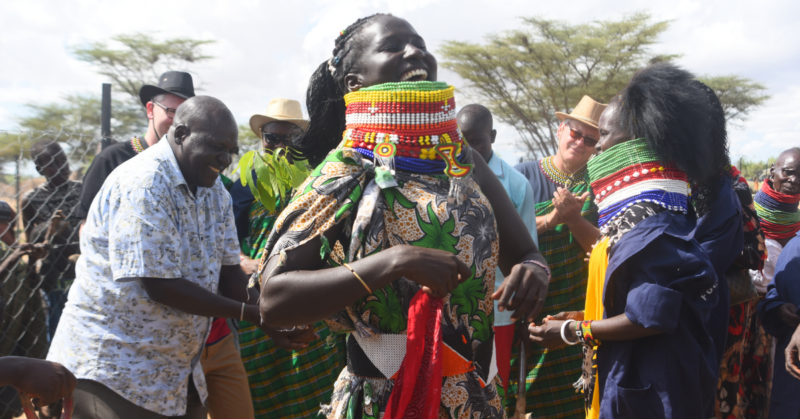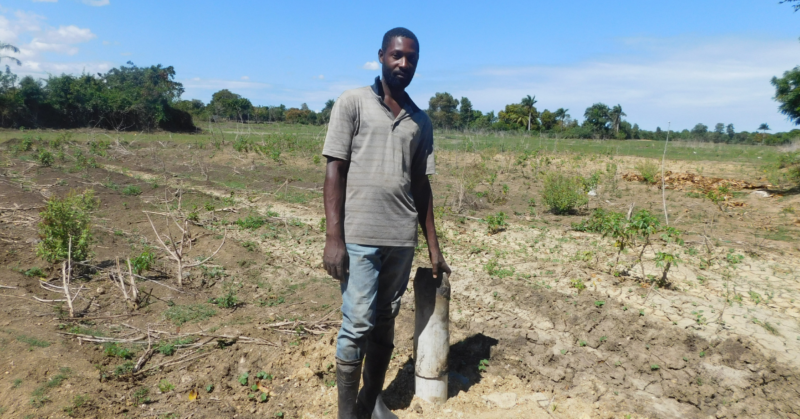Have you ever heard the phrase “Ugly American”? It’s not very nice. Maybe it makes you cringe or feel defensive.
Unfortunately, Americans have sometimes gotten a reputation for being loud, arrogant, or obnoxious.
We know it’s a stereotype, and definitely doesn’t apply to everybody—A) not everyone thinks Americans are annoying, and B) Americans can be extremely respectful of other cultures—but it’s still worth taking note of anything we might be guilty of so we can build friendships, and not offenses, when we travel.
I talked to our field staff around the world and scoured the internet, looking for advice and useful “do and don’t” tips.
Here are the top six things you should be mindful of the next time you travel internationally:
1. Greetings and introductions are very important—don’t rush them
For example…
Bolivia: People greet each other very warmly—with kisses and hugs, even people they’re meeting for the first time. A quick “hi” or cold handshake could make people feel rejected.
Uganda: It can be offensive if you don’t take the time to really greet someone. In America, it’s common to give a quick “hey” or “hi,” but that doesn’t cut it in Uganda.
Haiti: If I were to walk into a room of people in the U.S.—especially people I don’t know—I would wait to be introduced, or would wait for someone to approach and greet me. But in Haiti the person entering the room is always the first one to greet others.
Good to know, right?
2. Your speech—volume, speed and tone
Volume: Americans’ speaking and laughing volume often tends to be much louder than people’s in other parts of the world. So when we travel, it really makes us stand out—and not in a good way. Please be aware of this, and take your cues from the locals around you. If everyone else is speaking softly, even in a group setting at a restaurant, then you should too.
Speed: Americans can be fast talkers, and if the person they’re listening to isn’t talking fast enough, they can be quick to finish their sentence for them. However, in Uganda for example, doing this can make people feel overpowered or belittled.
Tone: Be careful about your attitude and your tone (and even body language) when you’re speaking to locals—especially leaders. Don’t talk down to them in any way. We never want to have an attitude of superiority just because we know some things they don’t. (Not to mention, they could feel the same way about us: I might know how to read and write, but I doubt I’d survive very long living in a desert without reliable access to water.) We are all equal in God’s sight, so let’s give everyone the respect they deserve.
3. Food and table manners
Many countries in Africa, Asia and the Middle East: In some cultures, your left hand is considered dirty. Eating with your left hand is just. Not. Done. I’m a lefty and I’m really not ambidextrous, but Ethiopia is a country I’ve been to many times, and a country where they eat with their hands, so you have to be prepared to make the adjustment, even if it feels a little awkward, so as not to offend or raise eyebrows.
It’s not gross, it’s just different: You’re bound to taste new, delicious foods while traveling internationally, but you may also encounter some you don’t like. That’s okay, but please be sensitive when expressing your opinions: just because a culture eats a different animal than you do doesn’t make it “disgusting.”
Zambia (and other countries): Our country director told us there’s a proverb that goes like this: “In the house of the monkey, you eat the monkey’s food.”
In other words, when you’re visiting a Zambian community (or many other places in the world), they may prepare a meal for you at considerable cost. We fully understand that when we travel internationally we need to be cautious about what we eat so we don’t get sick, but always weigh that decision with the knowledge that rejecting their food could be interpreted as rejecting them—and that’s the last thing we want to do.
4. Hand gestures and body language
Avoid hand gestures: You know the “okay” symbol we make with our thumb and forefinger? In certain countries it means something else—it means “money” in Japan, but in other countries it means something very offensive. So does the peace sign and even a simple thumbs up. We suggest you avoid hand gestures altogether, just in case you’re accidentally communicating something you didn’t intend to.
Showing the sole of your foot: in many parts of the world, it’s rude to let people see the bottom of your foot (or to point with your foot).
Turkey: standing with your hands on your hips or in your pockets is seen as rude.
5. What you wear matters—especially as a Christian
For example…
Uganda: sleeveless shirts and shorts are offensive.
India: Christian women cover their heads with a scarf in a church or ministry setting.
In general: Unless you’re going on a muddy construction trip, don’t wear dirty, old clothes. People you meet will put on their best to meet you, and you should show them similar respect by wearing nice, modest, clean clothes too.
Always plan to dress up for any church service you attend.
6. Interacting with nationals
Hand sanitizer: Our Uganda staff advised against using hand sanitizer in public right after you’ve shaken hands with community members. Think about it for a second—what message is that (unintentionally) sending to the person you just interacted with? I’m all for keeping the stuff handy, but please use it discreetly. This is a great tip not only for Uganda, but wherever you are in the world.
Photos: Would you like a random stranger walking up to you and taking your picture? I wouldn’t. And yet, as travelers, we’re often guilty of doing just that. Kids generally love to have their picture taken, but in some countries, women are extremely uncomfortable with it. You may even see them hold fabric to hide their faces. We know you’re probably just thinking about capturing the beautiful, interesting culture you’re experiencing, but to them you’re invading their privacy, and stripping them of some dignity—maybe even making them feel like an exhibit in the zoo. So, please be respectful—ask someone if you can take their photo, or take photos with people you have gotten to know.
Names and language: Don’t be annoyed or impatient when someone doesn’t speak your language when you’re in their country.
Making the effort to learn and use a few basic words and phrases in the local language can go a long way in building your relationship.
If someone has what you consider to be a difficult name to pronounce, don’t act like they’re the ones who have the problem. Do your best, ask them to repeat it, and practice!
PDA (public displays of affection): Not cool in some countries, so please take that into consideration and be respectful.
I hope you’ve found the tips in this blog post interesting and informative. As many of these issues (and so many others we didn’t even mention!) vary drastically from one culture to the next, we tried to give some general guidelines that will serve you well anywhere in the world.
That said, because this wasn’t an exhaustive list, I suggest that whenever you’re planning an international trip, you do a little research about the culture you’re going to—especially on the topics of clothing, etiquette and social “do’s and don’ts.”
And, one last thing: go on your international adventure eager to learn, experience and make new friends. Don’t assume everyone has a negative opinion about Americans, because they absolutely don’t. Start off by giving them the benefit of the doubt—be respectful and mindful, and you’ll be sure to give Americans a new reputation—something we’re all proud of!





